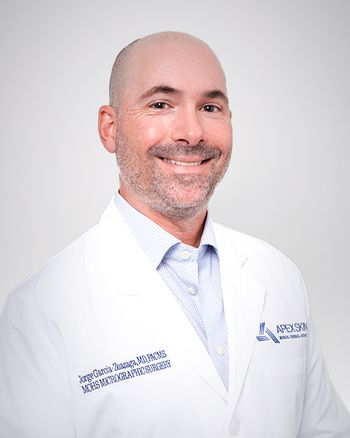
Is morale suffering?
Survey results recently released by the American College of Physician Executives paint a grim picture of physician morale across the United States. The survey indicates that nearly 60 percent of physicians have considered leaving the practice of medicine for varied reasons including: declining reimbursement, increasing patient loads, lack of respect and loss of autonomy.
OnCall asked dermatologists around the country if those problems are issues for them, and if so, how they cope. If not, why not?
Dermatologists who spoke to OnCall are not surprised by the survey findings. They know doctors suffering from low morale and emotional burnout, but most believe that dermatology, as a specialty, offers them a unique ability to sidestep some of those stresses. A few dermatologists admit confronting some of the issues raised by the survey, but say they've been able to make changes in their lives that have taken them out of that cycle of pressure.
Michael M. Cannava, M.D., practices in Soldotna, Alaska, which draws from a patient population of 50,000 residents on the Kenai Peninsula. He sounds ecstatic with his situation now, but that wasn't always the case.
"I actually moved. I recognized the potential for burnout early on. Indeed, after practicing for three years in Anchorage, I could feel it. So I moved from the city setting and came back to my hometown where the pace is much slower.
"Maybe not all, but many people still go into medicine because they want to help people. But even in Anchorage, although I was actually working a relatively light schedule, other offices would call wanting to get folks seen, or patients would call, and regardless of their condition or how long it had existed, they claimed they were in dire need of an appointment that day. Being someone who wants to help people, you are inclined to see them, and your days invariably get long. Plus, you have additional requirements in terms of charting and protocol."
Dr. Cannava says his move allows him to practice in a manner reminiscent of medicine's more honored days. He laughs that it might have kept him in his profession.
"We are nowhere near as busy as we would be in a large metropolitan center, which means we don't make near the amount of money, but my life is infinitely more rewarding than it ever could be in that setting.
"I have much more autonomy out here. I can't imagine what the folks in the Midwest or on either coast have to deal with for managed care. If I were in that situation I might just give it all up and go be the rock star I always wanted to be.
"Also, at this point there is still a measure of respect here common a generation ago versus other places I've practiced."
Dr. Cannava emphasizes that he's really not inviting others to join his "ideal" lifestyle, but, explains, finding a location that works for them can add to the enjoyment dermatology offers its practitioners.
Location, location, location
In Knoxville, Tenn., Edward J. Primka, M.D., also considers location a factor in physician satisfaction, but thinks there is even more to it in dermatology.
"When I look around my colleagues, I agree total physician satisfaction is lower. When you speak to older physicians, they are more dissatisfied than their peers were in the past.
"When we look at dermatology as a specialty, however, I think we tend to buck that trend a bit. A lot of us still have fun going to work every day," Dr. Primka says.
He concedes a loss of autonomy and respect that were conferred on physicians in the past.
Newsletter
Like what you’re reading? Subscribe to Dermatology Times for weekly updates on therapies, innovations, and real-world practice tips.











